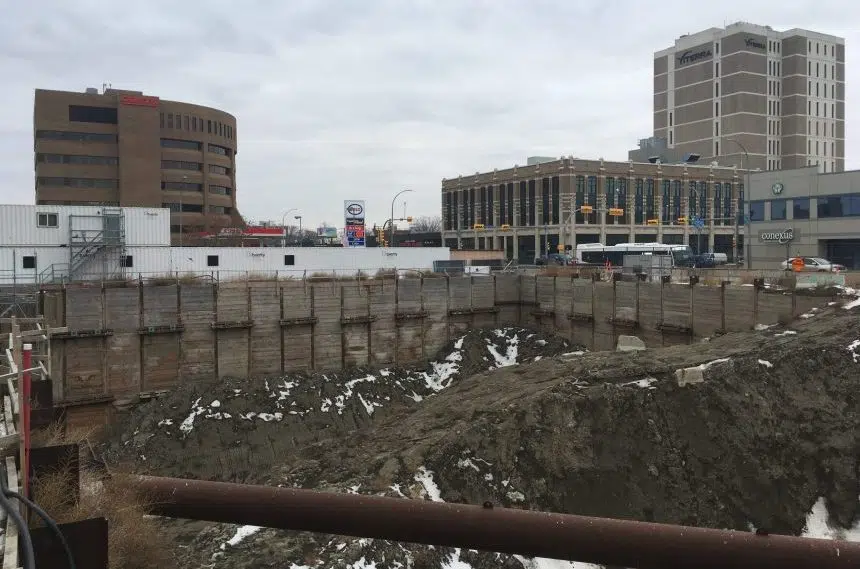The city is running out of legal options to force the developer behind Capital Pointe to fill the hole at Victoria Avenue and Albert Street, but it will get one more chance to argue over the options.
Court of Queen’s Bench Justice Timothy Keene reviewed an appeal board’s decision and released his ruling this week. It upholds most of what the appeal board decided, but still quashes one of its orders.
A ruling by the Saskatchewan Building and Accessibility Standards Appeal Board this summer cancelled the city’s order to backfill the hole and gave control to Westgate Properties. The appeal board essentially gave the developer three options: finish the project with a deadline to start construction as of April 1, 2019, construct permanent shoring on the site to keep it safe, or decommission and backfill the hole.
As the owner and developer, Westgate Properties chose the first option to continue building and complete the project.
The city took the matter to court in October, challenging the ruling of the appeal board and asking a judge to overturn it. The grounds were that the appeal board was unreasonable to rule the construction site is safe, that it was wrong to leave the developer in charge of the problem and that it wasn’t fair to give three options without allowing either side to argue whether any of them were feasible.
In his decision, Keene found that the board’s decision on the safety of the site was reasonable. His findings were based on the testimony of experts to the appeal board on both sides agreeing that the property was not in an unsafe condition as of April 2018 when the city ordered it to be filled.
“I have decided the board did not find an immediate unsafe circumstance existed but nevertheless found that the present state of affairs could not continue indefinitely because safety issues could be reasonably expected to arise in the future,” Keene wrote.
He also touched on the city’s argument that the board had no jurisdiction to delegate the decision making to Westgate by directing it to follow one of three options.
“The city argues this places the offender in charge of its own remedy,” Keene wrote. “However I respectfully disagree. The board provided certain identifiable and prescribed courses that Westgate had to take.”
The judge agreed it was unfair of the board to issue the order with three different options without letting either side know in advance.
“There was, in other words, no chance for either party to argue the merits or even if such a variation order was feasible,” Keene wrote.
“I find that I should quash the order based on the above error but in so doing I direct the board shall only rehear the issue of the content of the variation order (i.e. the conditions) and not a complete rehearing.”
He sided with the city, saying the approach of the board was in error because it offended “procedural fairness.”
Lawyers for Westgate Properties and the city have another chance to work out a solution or go back before the appeal board to argue the merits of each option.







